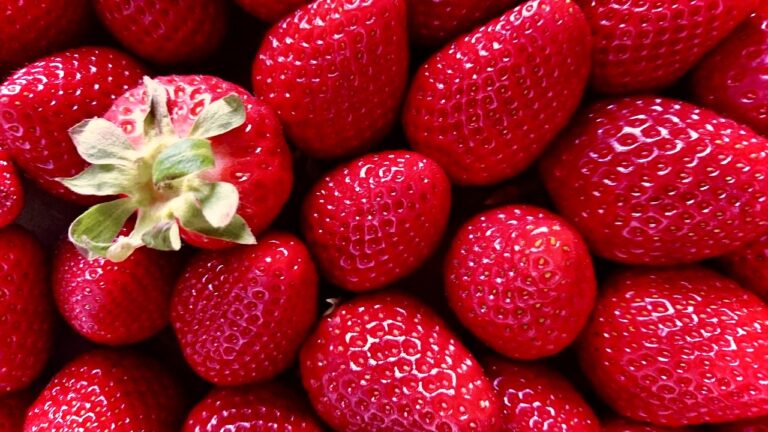Unveiling the potential of fruit pulp and puree in supporting sustainable agriculture projects: Betbhai book, Cricbet99 login, Diamondexch9 login
betbhai book, cricbet99 login, diamondexch9 login: Unveiling the potential of fruit pulp and puree in supporting sustainable agriculture projects
As the world continues to grapple with the effects of climate change, sustainable agriculture has become a key focus for many farmers and growers. One innovative way to support sustainable agriculture projects is by utilizing fruit pulp and puree. These byproducts of fruit processing have a number of benefits that can help promote sustainability in agriculture.
In this article, we will explore the potential of fruit pulp and puree in sustainable agriculture projects, discussing their uses, benefits, and how they can contribute to a more environmentally friendly farming ecosystem.
_____
The benefits of fruit pulp and puree in sustainable agriculture
1. Nutrient-rich soil amendments
Fruit pulp and puree are packed with nutrients that can help improve soil fertility. By adding these byproducts to the soil, farmers can enhance its nutrient content and promote healthier plant growth. This can result in higher yields and better-quality produce.
2. Organic pest control
Certain fruit pulps and purees have natural properties that can act as organic pest repellents. By using these byproducts strategically, farmers can reduce the need for chemical pesticides and promote a more eco-friendly approach to pest control.
3. Water conservation
Fruit pulp and puree can help improve soil moisture retention, reducing the need for excessive irrigation. This can be especially beneficial in areas facing water scarcity, where efficient water management is crucial for sustainable agriculture practices.
4. Waste reduction
By utilizing fruit pulp and puree, farmers can reduce food waste and promote a more circular economy. Instead of disposing of these byproducts, they can be repurposed to benefit the soil and overall farming ecosystem.
_____
How fruit pulp and puree can support sustainable agriculture projects
1. Fertilizer alternatives
Fruit pulp and puree can be used as natural fertilizers, providing essential nutrients to the soil and promoting plant growth. By incorporating these byproducts into their farming practices, growers can reduce their reliance on synthetic fertilizers and promote a more sustainable approach to soil management.
2. Composting materials
Fruit pulp and puree can be valuable additions to compost piles, helping to accelerate the decomposition process and create nutrient-rich compost for use in agricultural fields. By incorporating these byproducts into their composting practices, farmers can improve soil health and promote sustainable farming practices.
3. Livestock feed supplements
Certain fruit pulps and purees can also be used as supplements for livestock feed. By feeding these byproducts to animals, farmers can reduce food waste and provide additional nutrients to their livestock, promoting overall animal health and well-being.
4. Food processing additives
In addition to agricultural uses, fruit pulp and puree can also be utilized in food processing operations. By incorporating these byproducts into food products, manufacturers can reduce waste and create value-added products that appeal to environmentally conscious consumers.
_____
FAQs
Q: Can fruit pulp and puree be used on all types of crops?
A: Fruit pulp and puree can be beneficial for a wide range of crops, but the specific application may vary depending on the crop type and growing conditions. It’s important to consult with agricultural experts to determine the best use of these byproducts for your specific farming operation.
Q: Are there any potential challenges associated with using fruit pulp and puree in agriculture?
A: While fruit pulp and puree offer a number of benefits for sustainable agriculture, there may be challenges related to storage, transportation, and application. It’s important to develop a comprehensive plan for integrating these byproducts into your farming practices to maximize their potential benefits.
Q: How can farmers access fruit pulp and puree for use in their sustainable agriculture projects?
A: Farmers can explore partnerships with fruit processing companies to access fruit pulp and puree for use in their agricultural operations. By establishing relationships with suppliers, growers can ensure a consistent source of these valuable byproducts for their farming needs.
_____
In conclusion, fruit pulp and puree offer a wealth of opportunities for supporting sustainable agriculture projects. From enhancing soil fertility to promoting water conservation and waste reduction, these byproducts have the potential to revolutionize farming practices and contribute to a more environmentally friendly food system. By harnessing the power of fruit pulp and puree, farmers can create a more sustainable future for agriculture and foster a healthier planet for generations to come.







